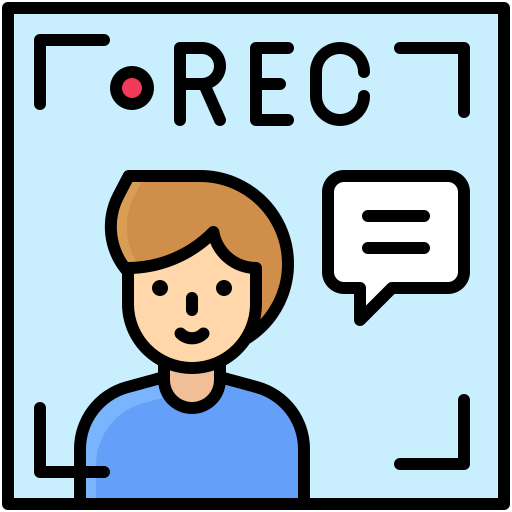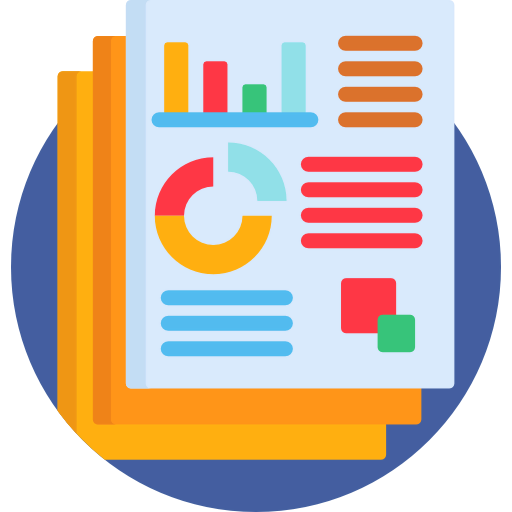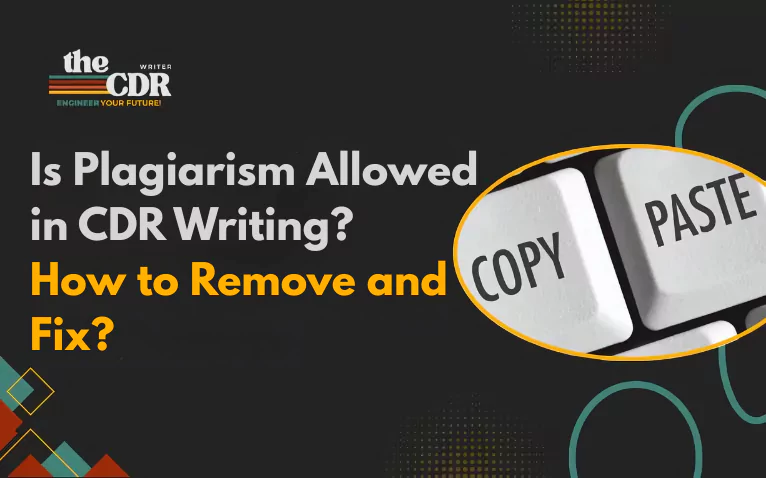Stage 2 CDR Writing Service for Chartered Engineer
Overwhelmed with the guidelines of Engineers Australia (EA)? Covering more than 50 engineering domains, our Stage 2 CDR writing services stand out because of their accuracy and competency in highlighting your Chartered Engineering skills and qualifications for positive outcomes.
Or talk to our experts at +02 8006 5104
Get Free Consultation
Increase Your Chances for a Positive Stage 2 Competency Assessment Australia
Planning to move to the next level and be a member of the Chartered Members of Engineers Australia (CPEng)? A proper CDR report for Engineers Australia Stage 2 competencies is your ticket to fulfilling your dream. The rejection rate by EA for a report that fails to demonstrate competencies properly, is poorly structured, holds incomplete evidence, or is plagiarised is high.
Therefore, hire a CDR writer who will not only substantiate your engineering competency claims with evidence but also ensure your report is 100% original, adhering to the strict EA guidelines. Our CDR Stage 2 report writing service collaborates with you to deliver a report that perfectly aligns with EA, increasing your chances for a positive assessment outcome.
The clock is ticking – don’t let go of the chance to step up the engineering game ladder in Australia!
How Does Our Chartered Engineer CDR Report Writing Process Work for EA?

Step 1: Choose Your Package
Get in touch with us to schedule a free consultation and choose your Stage 2 CDR report writing services. We ensure that all services adhere to Engineers Australia's standards, match Australian standards, and effectively demonstrate your competencies.

Step 2: Complete the Payment
Our team will send you a quotation tailored to your requirements, complete the payment, and share your CV and project-related documents/reports, including qualifications and work experience records, which will assist us in customising your CDR.

Step 3: Get Help with Your CDR Stage 2
Our CDR writer will closely examine your competency, guide you to choose the correct ANZSCO code, and write accordingly. After the CDR review, we will share the report with you. You can contact us anytime for further revisions (if needed).
Why Engineers Rely on Our Engineers Australia Stage 2 CDR Writing Services?

On-time Delivery
Get your engineering compenecy report on time without any delays. No need to run against the clock, assign, review, and submit a perfect report as per your plan.

24/7 Support Team
Our 24/7 support team enhances the workflow by continually collaborating and addressing your needs, enabling a smooth migration to Australia.

Expert CDR Writers
Our CDR report writers not only hold expertise in writing CDRs for EA but also possess field experience, making them the most reliable CDR writers.

Plagiarism-free CDR
Our professional CDR writers write all reports from scratch, ensuring they are 100% original and providing a complimentary Turnitin report for your peace of mind.

Affordable CDR Reports
While CDR report preparation may seem like an expensive endeavour, we offer an affordable and prompt service that won't put a dent in your pocket.

Complimentary Revisions
Willing to migrate to Australia? We write CDR reports for you and offer free revisions until you are 100% satisfied with the report.

Increased Positive Chances
Get a successful CDR report written as per the rules set by Engineers Australia and increase your chances for a positive EA approval with our Stage 2 CDR services.

Domain Specialised Writers
Get Chartered Status in Australia with our plagiarism-free CDR, written by domain-specialised writers covering more than 25+ engineering domains.
Secure Your CDR Approval with Ease
Stop risking rejection with unreliable services and become chartered engineers in Australia. Contact us now for flawless, high-quality CDR Stage 2 reports backed by expert insights.
Enjoy a Free Consultation to get started!
Writing CDR for Chartered Engineers for a Decade: Join Our Successful Clients
My friend availed their KA02 report writing service was also a game-changer. So, I tried. I couldn’t have completed my CDR report writing without the help of thecdrwriter.com. They made sure every section of my Stage 2 competency claims writing was perfectly written, meeting all Stage 2 competency requirements.
Date: 12th April 2025
I used thecdrwriter.com for my Stage 2 competency claims writing, and I was impressed with their level of professionalism. Their team helped me write my CDR report and offered essential CDR review services. If you're looking to apply for Stage 2, their expertise is exactly what you need!
Date: 13th May 2025
I was struggling to complete my CDR report for Australia’s Stage 2 competency assessment, but thanks to thecdrwriter.com, the entire process became much easier. Their service helped me meet all the Stage 2 competency claims writing requirements. The team guided me step by step, and I was able to finalise my CDR report quickly. Highly recommend!
Date: 13th June 2025
The team at thecdrwriter.com helped me with Stage 2 competency claims writing, and I couldn’t be more grateful. They meticulously reviewed my CDR and ensured it met all the Stage 2 requirements. Their CDR review service was thorough, and I’m confident it played a big role in my successful application.
Date: 12th April 2025
I had no idea how to approach writing my CDR report for Australia’s Stage 2 competency assessment, but thecdrwriter.com guided me through the entire process. They helped me craft a professional report that met all the Stage 2 competency claims writing criteria. I definitely recommend their services to anyone applying for Stage 2!
Date: 10th April 2025
The team at thecdrwriter.com was fantastic in helping me apply for Stage 2 competency. They took the time to ensure my CDR report writing met all the necessary criteria. Their CDR review service made sure everything was accurate, allowing me to confidently submit my report. A definite must for anyone applying for Stage 2.
Date: 10th September 2024
When I needed help with my CDR report for Stage 2 competency assessment, I turned to thecdrwriter.com, and they didn’t disappoint. They were incredibly helpful in reviewing my report and ensured it met the requirements for Stage 2. I highly recommend their Stage 2 competency claims writing service.
Date: 24th December 2024
If you're looking for CDR Australia report writing services, look no further! thecdrwriter.com not only helped me craft an outstanding report but also ensured it met Australia's Stage 2 competency assessment criteria. Their writing your CDR report service made the process so much more manageable.
Date: 5th June 2025
If you're looking for someone to help you with writing your CDR report, thecdrwriter.com is your best bet. The CDR I required got stage 2 competency, and they offer excellent CDR review services to ensure your report meets the exact Stage 2 competency requirements. They helped me complete my Stage 2 competency application with ease.
Date: 13th January 2025

⭐⭐⭐⭐⭐
I trusted them with my CDR, and they exceeded my expectations. The report was well-written, and the summary statement was spot-on. Highly recommend their services.

⭐⭐⭐⭐⭐
I was impressed with their CDR Writing Services. They delivered a well-structured and plagiarism-free report that met all EA guidelines. Thanks to them, my application was successful.

⭐⭐⭐⭐⭐
The writers at this service are truly experts. My CDR was written perfectly, and the summary statement was tailored to my engineering experience. I couldn’t have asked for better support.

⭐⭐⭐⭐⭐
My CDR was written from scratch and passed all plagiarism checks. The team ensured every detail aligned with EA’s requirements. I’m grateful for their professionalism.

⭐⭐⭐⭐⭐
The writers took the time to understand my engineering background and crafted a CDR that highlighted my skills perfectly. I’m thrilled with the results.

⭐⭐⭐⭐⭐
My Career Episode Report was comprehensive and followed EA’s guidelines precisely. The team was very professional, and I’m extremely satisfied with their work.
Our Services: From Stage 1 and Stage 2 Competencies to ACS Reports

Stage 1 CDR Writing
Our CDR writing service is designed to assist you with CDR reports, enabling you to obtain EA approval without any hassles.

ACS Skills Assessment Report
Our ACS Skills Assessment Report Writing Services improve your chances for a better outcome from the ACS Australia.
What Is Stage 2 CDR Writing for Engineers Australia?

The Stage 2 Competency Assessment by Engineers Australia (EA) is a formal evaluation of an engineer’s advanced skills, judgment, and professionalism. It is the key to achieving Chartered Professional Engineer (CPEng) status and registration on the National Engineering Register (NER). This Engineers Australia competencies report is assessed by the EA to ensure you are worthy of the CPEng status. This status signifies the highest level of professional competence in a specific engineering domain, is internationally recognised, and is highly esteemed by employers, governments, and the public.
Why Is Stage 2 Competency Assessment Important for Chartered Engineer Status in Australia?
The Stage 2 Competency Assessment is a critical and mandatory step for experienced engineers who wish to achieve Chartered Professional Engineer (CPEng) status with Engineers Australia. It’s not just a formality; it’s a rigorous process that validates an engineer’s advanced skills, professional judgment, and ethical commitment. Here’s a breakdown of why it’s so important:

1. It Validates Your Professional Competence
👉Unlike Stage 1, which focuses on foundational knowledge for migration purposes, the Stage 2 assessment is all about demonstrating that you can practice independently and unsupervised.
👉It assesses your ability to handle complex engineering tasks, make sound technical and ethical decisions, and lead projects and teams. The assessment is a benchmark of professional excellence.
2. It's a Gateway to a Prestigious Credential
👉A Chartered Professional Engineer (CPEng) is a prestigious title highly respected in Australia and internationally.
👉Achieving this status signals to employers, clients, and the public that you have met a high standard of competence, expertise, and professionalism.

👉Many senior engineering roles, especially in leadership or management, either prefer or require CPEng status.
3. It Offers Global Recognition and Mobility
👉Engineers Australia has mutual recognition agreements with engineering bodies in many other countries, including the UK, Canada, and the USA.
👉Obtaining CPEng status through the Stage 2 assessment significantly enhances the recognition of your professional credentials in these countries, opening up global career opportunities and improving your international mobility.
4. It Ensures a Commitment to Ethical and Sustainable Practice
👉The Stage 2 assessment framework places a strong emphasis on professional values and ethics. It requires candidates to demonstrate a commitment to public safety, environmental sustainability, and ethical conduct.
👉This ensures that Chartered Engineers are not only technically proficient but also responsible practitioners who prioritise the welfare of the community and the planet.
5. It Signals a Dedication to Lifelong Learning
👉To achieve and maintain CPEng status, you must demonstrate a commitment to Continuing Professional Development (CPD).
👉This means you must demonstrate that you are actively maintaining and updating your skills and knowledge to stay current with the latest industry advancements.
👉The assessment and the ongoing maintenance of CPEng status promote a culture of lifelong learning, which is crucial in a rapidly evolving field like engineering.
In essence, the Stage 2 Competency Assessment serves as the formal process through which Engineers Australia verifies that an engineer is not only knowledgeable but also experienced, capable, and committed to upholding the highest standards of the profession. It’s the key that unlocks the door to a higher level of professional recognition, career advancement, and global credibility.
Documents Required for Stage 2 Chartered Status Writing

Engineering Competency Claims (ECCs)
These are detailed narratives (800-1,200 words each) explaining personal involvement in technical projects and how specific competencies are met. The number of ECCs ranges from 11 to 16, depending on the chosen assessment pathway.
Engineering Experience Record (EER)
A brief summary (400-700 words) of the applicant's employment background, detailing roles, responsibilities, dates, and key achievements.
Continuing Professional Development (CPD) Record
A list of activities undertaken to maintain and enhance engineering knowledge and skills over the past three years (e.g., courses, conferences, workshops, self-learning, mentoring, typically demonstrating 150 hours).
Updated CV /Resume
A comprehensive document listing qualifications, professional journey, and engineering achievements, matching the EER.
Referee Reports
Required for certain pathways, confirming the applicant's experience and competence.Stage 2 Competency Standards: Four Key Areas and 16 Elements
The Stage 2 Competency Standards are structured into four main units, each with specific elements of competence:
Personal Commitment: Demonstrating ethical approach, responsibility, and ongoing professional development.
Elements: Deal with ethical issues, Practice competently, and take Responsibility for engineering activities.
Obligation to Community: Proving dedication to community welfare, sustainability, and risk management.
Elements: Develop safe and sustainable solutions, Engage with the relevant community and stakeholders, Identify, assess, and manage risks, Meet legal and regulatory requirements.
Value in the Workplace: Showing impact through effective communication, leadership, and decision-making.
Elements: Communication, Performance, Taking action, Judgment.
Technical Proficiency: Highlighting expertise, creativity, innovation, and continuous professional development.
Elements: Knowledge of technology, Local knowledge, Problem analysis, Advanced operation, Evaluation.
How Is Stage 2 CDR Engineers Australia Different from Stage 1 CDR Writing?
The Stage 2 CDR (Competency Demonstration Report) for Engineers Australia differs from the Stage 1 CDR in several critical areas, including eligibility, the assessment’s focus, and the outcome for the applicant. Below is a table highlighting the core differences:
| Criteria | Stage 1 CDR | Stage 2 CDR |
| Who is it for? | Recent graduates, engineers seeking membership | Experienced engineers aiming for Chartered status |
| Main Purpose | Entry to the engineering profession in Australia | Recognition as a Chartered Professional Engineer (CPEng) |
| Focus | Academic qualifications, fundamental engineering knowledge | Practical experience, leadership, project management, and ethics |
| Assessment Content | Career Episodes, Summary Statement, CPD | Advanced competencies: technical skills, leadership, ethics, workplace contribution |
| Outcome | Eligibility for membership or migration skills assessment | Chartered Professional Engineer (CPEng) title, NER listing |
| Eligibility Level | Demonstrates knowledge/skills equivalent to an accredited Australian engineering degree | Demonstrates advanced practice, responsibility, and ethical capacity |
What Are the Common Mistakes Applicants Make in Stage 2 Competency Report Preparation?
Stage 2 Competency Reports, also known as Competency Demonstration Reports (CDR), are crucial for engineers seeking a professional skills assessment from an organisation like Engineers Australia. A common purpose of this report is to demonstrate an applicant’s engineering competency and experience. Applicants often make several key mistakes that can lead to rejection.
1. Plagiarism and Lack of Originality
This is arguably the most critical mistake. Many applicants copy content directly from online CDR samples, templates, or even other applicants’ reports. Engineers Australia and similar professional bodies use sophisticated software to detect plagiarism. A report found to be plagiarised will not only be rejected but may also lead to a ban on future applications for a significant period. You must write your report based on your own unique experiences and in your own words.
2. Failure to Follow Guidelines and Formatting
Each professional body provides a detailed guide on how to prepare the report, including specific formatting, word count limits, and required sections. Applicants often fail to adhere to these rules.
- Incorrect Structure: The report must be structured according to the specified format, which typically includes a Continuing Professional Development (CPD) list, three Career Episodes, and a Summary Statement.
- Word Count: Each Career Episode has a specific word limit (e.g., 1000-2500 words). Exceeding or falling short of this range can indicate a lack of detail or an inability to be concise.
- Lack of Chronology: The report’s details, including project dates and job responsibilities, should be presented in a clear, chronological order.
3. Insufficient Detail and Weak Narrative
The report is meant to be a compelling narrative of your engineering career. A common mistake is providing only a summary or a list of tasks without explaining your personal contribution.
- Using “We” Instead of “I”: Applicants often describe team projects using phrases like “we did” or “our team accomplished.” The report must focus on your specific role, responsibilities, and contributions.
- Insufficient Engineering Depth: The report needs to go beyond a simple description of tasks. You must provide specific examples of how you applied engineering principles, solved complex problems, and used your technical skills.
- Missing or Vague Problem Statements: A good Career Episode identifies a specific engineering challenge or problem you faced. Many reports fail to clearly state the problem and the steps you took to solve it.
Other Pitfalls to Avoid
Grammatical and Spelling Errors:
A report with numerous grammatical, punctuation, and spelling errors demonstrates a lack of professionalism and poor communication skills, which are key competencies being assessed. Always proofread your report carefully or have someone else review it.
Excessive Technical Jargon:
While technical details are important, using excessive jargon, complex calculations, or detailed charts can make the report difficult to read and may obscure the focus on your personal contributions. The language should be clear, concise, and easy for the assessor to understand.
Incorrectly Selected Projects:
The projects you choose for your Career Episodes should be significant and relevant to the engineering discipline you are applying to. Selecting projects that are too simple, too old, or not aligned with your desired professional category can lead to a negative assessment.
Lack of Supporting Evidence:
You must provide evidence for the claims you make in your report. This includes providing details about the company, your position, project dates, and specific project outcomes. You should be able to back up any information you provide if questioned.
False or Exaggerated Information:
Providing false information required for stage 2 competency about your projects, credentials, or experience is a serious offence that can result in immediate rejection and potential legal action.
TheCDRWriter: Stage 2 CDR Help Australia Where Competency Meet Highlighted Precision
Are you an engineer in Australia aiming for the prestigious recognition of a Chartered Engineer? TheCDRWriter is your dedicated partner in exploring the intricate Stage 2 Competency Demonstration Report (CDR) process, ensuring your expertise is highlighted with precision and clarity.

Our specialised Professional Engineer Stage 2 CDR Writing Service is designed to propel you towards success, helping you confidently step up the ladder and gain the recognition you deserve from Engineers Australia. We understand the rigorous requirements, CDR guidelines and the criticality of presenting your engineering competencies effectively.
We meticulously help you articulate your personal involvement in technical engineering projects, addressing all 16 vital competency elements. Our writers ensure each claim vividly demonstrates your commitment, technical proficiency, value, and independent practice capabilities, avoiding common pitfalls and focusing on your individual contributions.
Don’t let the complexity of the Stage 2 Competency Report Preparation hold you back from achieving your Chartered Engineer goal. Partner with TheCDRWriter for unparalleled support where your competency meets highlighted precision.
How Much Does Writing a Chartered Engineer Competency Demonstration Report Cost?
15 Days plan $1449
10 Days plan $1999
7 Days plan $2499
Frequently Asked Questions
What Are the Chartered Competency Assessment Pathways?
Engineers Australia offers four pathways to achieve Chartered status, each with distinct requirements:
Professional Development Program (PDP): For engineers with an undergraduate degree and at least five years of experience, involving online modules and a portfolio of evidence.
Engineering Competency Report (ECR): For those with a minimum of seven years of experience and a recognised engineering qualification, a detailed ECR is required.
Mature Experienced Engineer (MEE): For engineers with at least 15 years of experience, especially those without a recognised qualification, requiring an Engineering Competency Statement (ECS) and evidence of experience.
Mutual Recognition Agreement (MRA): For engineers already registered with recognised overseas engineering bodies, involving submission of an ECS and evidence of experience.
Additional pathways mentioned include “Chartered via interview” (15+ years experience), “Chartered via industry review” (4-5 years experience), “Chartered for academics,” and “Chartered for defence.”
How Long Does It Take to Prepare a Stage 2 Competency Demonstration Report?
The probable time to write an Engineers Australia’s Stage 2 competency report is 15 days. However, if you are in a hurry, you can avail of our urgent Stage II CDR writing services for Engineers Australia. To get a proper deadline, share your requirements with us.
What Are the Benefits of Chartered Professional Engineer (CPEng) Status?
Achieving CPEng status offers numerous significant benefits, solidifying an engineer’s professional standing and opening new avenues for career growth:
- Global Recognition: Chartered status is internationally recognised and respected, particularly through agreements such as the Washington Accord.
- Enhanced Career Opportunities: It unlocks access to senior roles, leadership positions, and eligibility for government projects in Australia and worldwide.
- Increased Salary Potential: Chartered engineers typically command higher salaries due to their recognised expertise and independent practice capabilities.
- Professional Esteem: It demonstrates a deep commitment to the engineering practice and signifies being at the top of the profession, earning respect from peers, employers, and the public.
- Validation of Competence: It formally validates an engineer’s advanced knowledge, skills, and professional values, affirming their ability to practice independently and responsibly.
What Is the Typical Process for the Stage 2 Competency Assessment?
- Create EA Account: Register with Engineers Australia and set up a portal account.
- Select Chartered Area of Practice: Choose your specific engineering discipline.
- Prepare Documents: This involves drafting ECCs, EER, CPD, and an updated CV.
- Upload and Submit: Submit all required documents via EA’s myPortal.
- Attend Professional Interview: An EA assessor reviews the submission, followed by a one-on-one interview lasting 1-1.5 hours. (Guaranteed Chartered Status: Engineers Australia Stage 2 Assessment)
The review process typically takes 6 to 12 weeks.
Can I Write My Stage 2 CDR on My Own, or Should I Take Professional Help?
While getting help is not at all mandatory, and you must try to write your Stage 2 CDR report yourself, the only reason engineers hire experts is that a rejection from Engineers Australia (EA) for not meeting the guidelines properly only puts their careers at risk.
Who Is Eligible to Apply for the Stage 2 Competency Assessment?
Engineers who have successfully completed the Stage 1 Competency Assessment or hold a Washington Accord-accredited qualification are eligible to apply. Additionally, applicants must have at least five years of professional engineering experience.
Overseas engineers already working in Australia may find Stage 2 essential to validate their competency within the Australian context. Eligibility also extends to experienced engineers seeking to elevate their professional standing, whether they work in design, project management, operations, or research.
Why Is TheCDRWriter the Best CDR Writing Service Provider for Skill Assessment?
Our professional CDR report writers hold expertise and experience. Furthermore, they collaborate with you to ensure you write a complete CDR report for the second stage. Our top-quality CDR preparation begins with a complimentary consultation, followed by an assessment of your requirements, and then the writing of the report. Before sending you the CDR report, our quality management team checks and reviews the report to guarantee an error-free report is delivered to you.
Does Your Stage 2 CDR Reports for Chartered Engineer Status Guarantee Success?
Our success rate for Stage 2 CDR (Competency Demonstration Report) reports for Chartered Engineer status with Engineers Australia is reported to be very high, approaching 100%.
Things to Know Before You Hire A CDR Writer
Say Goodbye to Rejections and Revisions
Choose our CDR writing services for accurate, polished reports. We offer Free Evaluations to assess your needs before you commit!
Meera Sharma
Electrical Engineer, 7 years, CDR Writing: 3 years
Rajesh Iyer
Mechanical Engineer, 12 years, CDR Writing: 5 years
Aditya Verma
Data Engineer, 11 years, CDR Writing: 5 years
Rohan Malhotra
Electronics Engineer, 8 years, CDR Writing: 3 years
Ananya Reddy
Software Engineer, 8 years, CDR Writing: 3 years
Vikram Joshi
Robotics Engineer, 6 years, CDR Writing: 2 years
Tanya Saxena
Structural Engineer, 13 years, CDR Writing: 5 years
Pooja Deshmukh
Biomedical Engineer, 5 years, CDR Writing: 2 years
Karthik Nambiar
Civil Engineer, 10 years, CDR Writing: 4 years
Sanya Kapoor
Aerospace Engineer, 9 years, CDR Writing: 4 years
Neeraj Bhatia
Chemical Engineer, 15 years, CDR Writing: 6 years
Swati Choudhary
AI & Machine Learning Engineer, 7 years, CDR Writing: 3 years




I was unsure of how to proceed with my Stage 2 competency claims writing, but the experts at thecdrwriter.com offered invaluable assistance. Their CDR review service ensured I met all the requirements for Stage 2. The final report was exactly what I needed to submit for my Stage 2 competency application in Australia.
Date: 1st September 2025